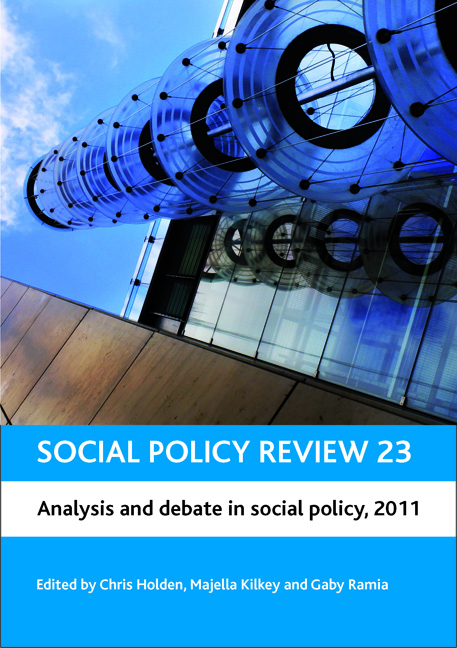one - Conservative social policy: from conviction to coalition
Published online by Cambridge University Press: 01 September 2022
Summary
Although implied by the opinion polls during the course of the campaign, the result of the May 2010 General Election, and the first ‘hung’ Parliament for the United Kingdom for more than 35 years, came as a surprise to many. So too did the subsequent creation of the Coalition government by the Conservatives and the Liberal Democrats. For the Conservative Party the return to government after 13 years in opposition came after a succession of leadership changes and attempts to make the Party more acceptable to the electorate. For the Liberal Democrats it was perhaps even more of a surprise, but provided their first real opportunity to directly influence policy from within government since 1912.
This chapter focuses primarily on the Conservatives, considering the Party's journey since the Premiership of Margaret Thatcher, well known as a conviction politician, and the impact of a series of leaders prior to David Cameron taking on that role in late 2005. It examines changes in the Conservatives’ approach under Cameron and their implications for social policy, before providing an early assessment of the Coalition with the Liberal Democrats and the work of the new government.
Margaret Thatcher and her legacy
Any analysis of the development of Conservative policy from the late 1970s has to take account of the impact of Margaret Thatcher and the influence of the New Right. Although the Thatcher period and the policies of the time have been widely analysed, especially in relation to social policy, it is worth reflecting on them briefly here because of their long-lasting implications for the Conservative Party.
Under Thatcher's leadership the Conservative Party was significantly influenced by New Right critiques of the welfare state, including by writers such as Hayek (see, for example, 1944, 1976), Friedman (1962) and Harris and Seldon (1979). The welfare state was seen as leading to excessive public expenditure and an unfair tax burden on citizens and entrepreneurs, negating choice, weakening the family and creating dependency. With its emphasis on the supremacy of the market and the reduction of the role of the state, the New Right was viewed by many (see, for example, Bosanquet, 1983) as representing a break from the paternalistic ‘One Nation’ Conservatism that had been seen as dominating the Party for much of the post-war period (however, see Seawright, 2009; Bochel, 2010).
- Type
- Chapter
- Information
- Social Policy Review 23Analysis and Debate in Social Policy, 2011, pp. 7 - 24Publisher: Bristol University PressPrint publication year: 2011

